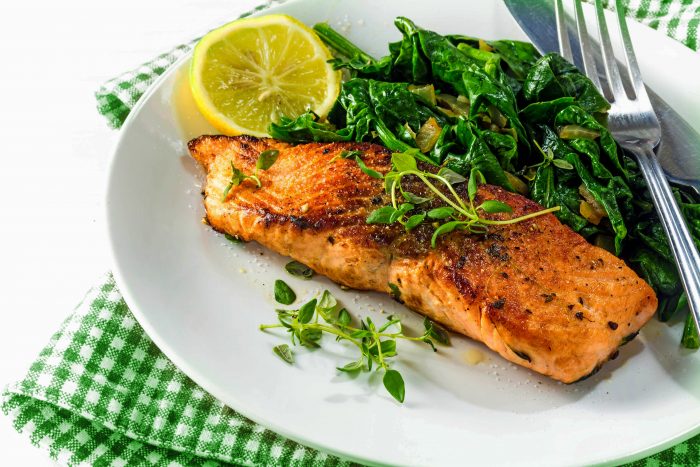Medical Compass: Celebrate health independence
Mouthwatering barbeque options can decrease health risks
By Daniel Dunaief

What better way than the unofficial launch of summer holidays – and summer barbeques – to kick-start you on the path to preventing chronic diseases? In the past, I have written about the dangers of processed meats in terms of causing chronic diseases, such as cancer, diabetes, heart disease and stroke. These are foods commonly found at barbeques and picnic meals. Therefore, I think it is only fair to talk about healthier alternatives and the evidence-based medicine that supports their benefits. The Mediterranean-style diet is a key to success. It is composed of thousands of beneficial nutrients that interact with each other in synergistic ways.
The Mediterranean-style diet, as I have mentioned previous articles, includes green leafy vegetables, fruit, nuts and seeds, beans and legumes, whole grains and small amounts of fish and olive oil. We all want to be healthier, but these are the summer holidays – doesn’t healthy mean tasteless? Not at all!
At a memorable family barbeque, we had a bevy of choices that were absolutely succulent. These included a three-bean salad, mandarin orange salad with mixed greens and a light raspberry vinaigrette, ratatouille with eggplant and zucchini, salmon fillets baked with mustard and slivered almonds, roasted corn on the cob, roasted vegetable shish kebobs, and large bowl of melons and berries. I am drooling at the memory of this buffet. Let’s look at the scientific evidence that explains why these foods help us.
Cancer prevention
Fruits and vegetables may help prevent pancreatic cancer. This is very important, since by the time there are symptoms, the cancer has spread to other organs and the patient usually has less than 2.7 years to live (1). Five-year survival is only five percent (2). In a case control (epidemiological observational) study, cooked vegetables showed a 43 percent reduction and non-citrus fruits showed an even more impressive 59 percent reduction in risk of pancreatic cancer (3). Interestingly, cooked vegetables, not just raw ones, had a substantial effect.
Garlic plays an important role in reducing the risk of colon cancer. In the IOWA Women’s Health Study, a large prospective (forward-looking) trial involving 41,837 women, there was a 32 percent reduction in risk of colon cancer for the highest intake of garlic compared to the lowest. Vegetable consumption also showed a statistically significant reduction in the disease, as well (4). Many of my patients find that fresh garlic provides a wonderful flavor when cooking vegetables.
Diabetes – treatment and prevention
Fish plays an important role in reducing the risk of diabetes. In a large prospective study that followed Japanese men for five years, those in the highest quartile of intake of fish and seafood had a substantial decrease in risk of type 2 diabetes (5). Smaller fish, such as mackerel and sardines, had a slightly greater effect than large fish and seafood in potentially preventing the disease. Therefore, there is nothing wrong with some grilled fish on the “barbie” to help protect you from developing diabetes.
Nuts are beneficial in the treatment of diabetes. In a randomized clinical trial (the gold standard of studies), mixed nuts led to a substantial reduction of hemoglobin A1C, a very important biomarker for sugar levels for the previous three months (6). As an added benefit, there was also a significant reduction in LDL, bad cholesterol, which reduced the risk of cardiovascular disease.
The nuts used in the study were raw almonds, pistachios, pecans, peanuts, cashews, hazelnuts, walnuts and macadamias. How easy is it to grab a small handful of unsalted raw nuts, about 2 ounces, on a daily basis to help treat diabetes?
Stroke prevention
Olive oil appears to have a substantial effect in preventing strokes. The Three City study showed that olive oil may have a protective effect against stroke. There was a 41 percent reduction in stroke events in those who used olive oil (7). Study participants, who were followed for a mean of 5.2 years, did not have a history of stroke at the start of the trial.
Though these are promising results, I caution you to use no more than one tablespoon of olive oil per day, since there are 120 calories in a tablespoon.
It is not difficult to substitute the valuable Mediterranean-style diet for processed meats, or at least add them to the selection. This plant-based diet offers a tremendous number of protective elements in the prevention of many chronic diseases. So this Independence Day and beyond, plan to have on hand some mouth-watering healthy choices.
References:
(1) Nature. 2010;467:1114-1117. (2) Epidemiol Prev Anno 2007;31(Suppl 1). (3) Cancer Causes Control. 2010;21:493-500. (4) Am J Epidemiol. 1994 Jan 1;139(1):1-15. (5) Am J Clin Nutr. 2011 Sep;94(3):884-891. (6) Diabetes Care. 2011 Aug;34(8):1706-11. (7) Neurology. 2011 Aug 2;77(5):418-25.
Dr. David Dunaief is a speaker, author and local lifestyle medicine physician focusing on the integration of medicine, nutrition, fitness and stress management. For further information, visit www.medicalcompassmd.com.







